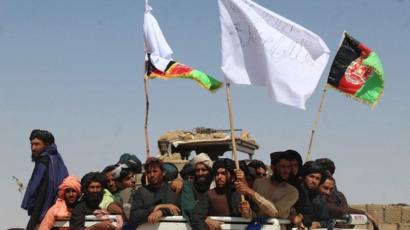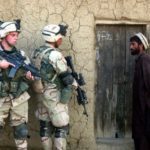Talk of peace has returned to Afghanistan, with the prospect of talks between the U.S. administration and the Taliban being revived. We can faintly discern the outlines of a potential deal: a timeline set for withdrawal, a possible reduction in violence, and an eventual power-sharing agreement – the details of which will be furiously debated in hotel boardrooms. What is missing, yet again, is the fate of the Afghan people themselves. Will any such agreement ensure that their rights – including to freedom of expression, to equality and nondiscrimination, to justice – are respected?
For all the talk of peace, the armed conflict in Afghanistan is not winding down. It is widening and the toll on civilians continues unabated. Last year was one of the deadliest on record for Afghanistan. In the first nine months alone, at least 2,563 civilians were killed and 5,676 wounded. Afghanistan continues to be the deadliest conflict in the world for children. Civilians were deliberately and indiscriminately targeted by the Taliban, in war crimes that did not spare schools and mosques. Furthermore, the armed group calling itself the Islamic State in Khorasan ruthlessly deployed its virulent sectarianism in the bombing of a Shi’a Hazara wedding, claiming the lives of nearly 100 people, many of them children, and wounding nearly twice as many.
Most of the killings from January to June, however, weren’t committed by armed groups. They were the responsibility of Afghanistan’s own armed forces, including clandestine armed groups, and the international forces supporting them. As a United Nations report detailed last year, the bombings of alleged methamphetamine labs claimed the lives of more than 60 civilians. In December, a US operated drone strike killed five people traveling by car, including a mother who had just given birth. On the ground, night-time “search operations” have led to further deaths. Last September, in Nangarhar province, the National Directorate for Security carried out an operation that killed four brothers – triggering an outcry that led to the resignation of Afghanistan’s top spymaster.
The current war in Afghanistan is often referred to as America’s longest, now in its 19th year. What is often forgotten is that, for Afghanistan, there have been four decades of near-continuous conflict. Over that time, one in three Afghans have been forcibly displaced, leaving millions to become refugees in neighboring countries. The families who grieve for their victims today have lowered loved ones into early graves before – under the Taliban, during the civil war of the 1990s, and during the Soviet occupation.
We don’t know how many people were killed in those earlier conflicts. There are thousands of families who still don’t know what happened to their loved ones who left their homes one day to never return. What we do have are the United Nations’ records on the past decade. They tell the story of nearly 100,000 Afghan civilians killed or injured since 2009. Nearly 34,000 of them were killed. More than 22,000 of the dead were children, and nearly 9,000 were women. They came from all parts of the country – every age group, every ethnicity, every religious sect, every province. The one thing that unites every Afghan is a memory of tragic loss.
For Afghanistan’s victims, there has been no justice. The Afghan government, the United States, and other international partners have repeatedly failed not just to protect civilians but to undertake genuine investigations and prosecutions for crimes under international law. Given this dereliction of its duty, it fell to the International Criminal Court (ICC) to carry out its own investigation into war crimes and crimes against humanity committed by all sides of the conflict since 2003, when Afghanistan became a state party to the Rome Statute. Instead of cooperating, the Trump administration took steps to coerce the court into submission with threats of reprisals. In insisting on its own right to impunity, the United States is ironically also shielding the Taliban and other armed groups from accountability.
Unfortunately, the ICC refused to open an investigation, citing as part of its reasons the likelihood that the US and Afghanistan would not cooperate with an investigation. The court’s decision is currently under appeal. If the court does not reverse its decision, it will have — as the international community has always done — failed the victims of conflict in Afghanistan. There have been 699 victims’ representations submitted to the ICC’s pre-trial chamber; 680 of these representations welcomed the prospect of an investigation aimed at bringing those responsible to justice, preventing crimes, and establishing the truth.
Any peace deal must also adhere to these terms. No one desires peace more than the people of Afghanistan, who have suffered so much, for so long. But peace cannot merely mean the cessation of armed hostilities. For a peace process to be worthy of its name, it must not ignore Afghan voices – especially those of Afghan women – and their calls for justice and accountability. And it must guarantee the human rights they have worked so hard for over the past two decades.













